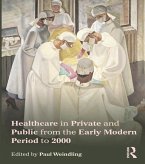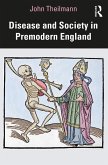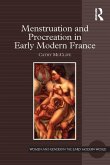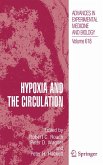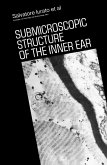In Mechanization of the Heart: Harvey and Descartes Thomas Fuchs discusses the similarities and differences of the views of the two seventeenth-century scholars William Harvey and Rene Descartes on the beart and circulationof the blood; Fuch traces the reception of the two views in the medical literature of the time and the influence both views had.
In Mechanization of the Heart: Harvey and Descartes Thomas Fuchs begins by comparing the views of William Harvey [1578-1657] and Rene Descartes [1596-1650] on the heart and the circulation of the blood through the body. These two seventeenth-century scholars -- one a British medical doctor, the other a French philosopher and mathemetician -- differed substantially in their beliefs: they both accepted the idea of circulation of the blood, but differed on the action of the heart. Fuchs traces the ways the opposing views were received, revised, rejected, or renewed in succeeding generations by medical writers in various parts of Europe. He then examines Harvey's approach to cardiac and circulatory physiology, mainly through an examination of Harvey's book De motu cordis: he follows with a discussion of the background in Aristotelian philosophy that was the requirement for all studies in medicineand how that affected Harvey's beliefs. Fuchs then turns to Descartes's presentation of Harvey's views and shows how his view, rather than Harvey's, was accepted in Europe at that time. Marjorie Grene brings to the translation herdistinguished background in philosophy and her keen insights into medical philosophy.
Thomas Fuchs teaches psychiatry at the Rupert-Karls-Universitat, Heidelberg.
MarjorieGrene is Professor Emeritus of Philosophy at the University of California at Davis, and Adjunct Professor and Honorary Distinguished Professor of Philosophy at Virginia Tech University.
In Mechanization of the Heart: Harvey and Descartes Thomas Fuchs begins by comparing the views of William Harvey [1578-1657] and Rene Descartes [1596-1650] on the heart and the circulation of the blood through the body. These two seventeenth-century scholars -- one a British medical doctor, the other a French philosopher and mathemetician -- differed substantially in their beliefs: they both accepted the idea of circulation of the blood, but differed on the action of the heart. Fuchs traces the ways the opposing views were received, revised, rejected, or renewed in succeeding generations by medical writers in various parts of Europe. He then examines Harvey's approach to cardiac and circulatory physiology, mainly through an examination of Harvey's book De motu cordis: he follows with a discussion of the background in Aristotelian philosophy that was the requirement for all studies in medicineand how that affected Harvey's beliefs. Fuchs then turns to Descartes's presentation of Harvey's views and shows how his view, rather than Harvey's, was accepted in Europe at that time. Marjorie Grene brings to the translation herdistinguished background in philosophy and her keen insights into medical philosophy.
Thomas Fuchs teaches psychiatry at the Rupert-Karls-Universitat, Heidelberg.
MarjorieGrene is Professor Emeritus of Philosophy at the University of California at Davis, and Adjunct Professor and Honorary Distinguished Professor of Philosophy at Virginia Tech University.
Dieser Download kann aus rechtlichen Gründen nur mit Rechnungsadresse in A, D ausgeliefert werden.



